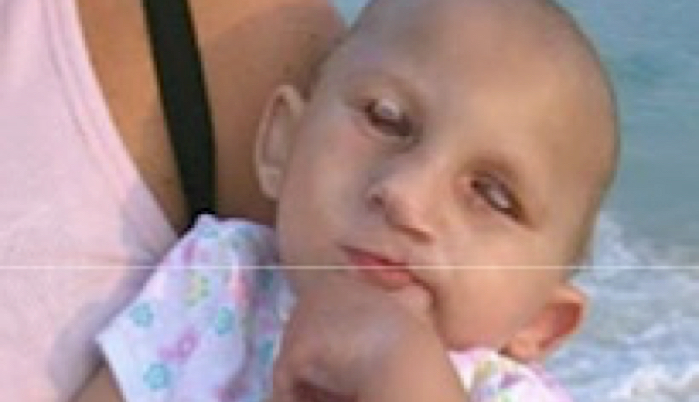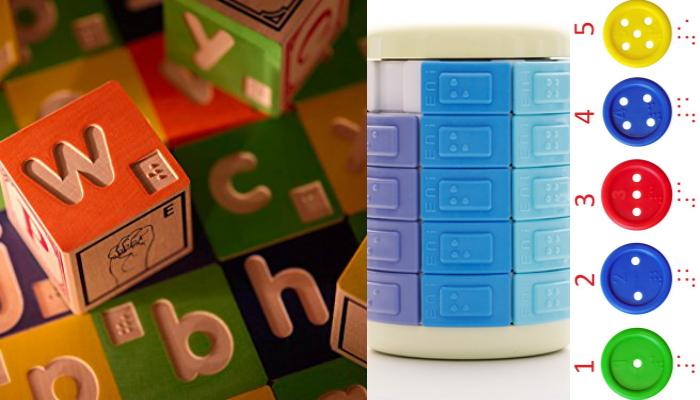Your Baby has Anophthalmia

By Gwen S.
Your baby has anophthalmia. Now what?
I could sit back and tell you what I personally think you should do, but that is not what you want to hear. So, I will tell you the one thing that I can, what our family did once our daughter was born.
You will find that my story is very similar to your own. That is how it is among parents of children with anophthalmia. We are all from different places with different components to our families, but we all have the same tie that binds us – blind children, our noticeably defined blind children.
My Now what? began as a complete surprise. Ivey was my third child. There were no complications. This is where I could tell you everything will work out fine; there is a purpose for everything, blah, blah, blah. Who are we kidding here? That is definitely not the way it happens.
Now, if you are new to this anophthalmia thing, you may or may not agree and if you have already been there, well, most of us do agree upon this next point. Finding out that your child has anophthalmia is a tragic, and I will repeat, a tragic moment. It is one moment I will never forget and a moment I never want to relive. Consequently, it is the most life altering moment in my life. Guess what? It is okay to feel that way.
What counts now that you are facing new obstacles that you never dreamed your child would have, is how you handle the day after finding out… and the next day… and the next day.
All of us here at MAPS have our own ways of coping, but that is the key. We have all found our own means of facing and RISING up to the challenge. Figuring out how is the hardest part. Initially the shock of the situation almost suffocates you to death. You pretty much don’t function outside of involuntary bodily activities. Sleep is impossible. So then you become even more delirious from exhaustion. Right? At some point in time you must move forward. I would say that it requires an undeniable jolt of some sort to zap you back into the world of the living. My moment came with a phone call.
A friend with a special needs child called me within weeks of Ivey’s birth. One, she wanted to congratulate me on Ivey’s birth because she (from her own experience) knew that most people had not thought to considering the magnitude of Ivey’s medical situation – everyone was in shock.
Two, she offered me very tough words that I needed to hear, and the sooner the better. Anophthalmia was not about me; it was about my daughter. She said, “I don’t feel sorry for you. You don’t have a choice now. You will get through it. You will do it for Ivey.” At first I was stunned, then I realized – she was right.
Through the year we have faced many obstacles that would have never happened had Ivey been a normal child. Our family has adapted to having a home health nurse in our home eleven hours out of the day. We have learned to juggle two sons along with Ivey’s medical trivia. We have found ourselves becoming giddy about picking out Ivey’s eye color. Seriously, there is a perk. How many parents get to choose their child’s eye color? Of course, there is also the ever present battle with the insurance company. The list goes on and on.
Now our family has grown accustomed to having a blind baby around the house. The newness has worn off and she fits like a worn shoe. Of course when we leave the walls of our home, she is still something to see. People do stare and ask questions, but that’s okay. Only time has allowed my heart to heal so that I can accept Ivey’s uniqueness.
She was not the package I had expected at birth, but now that she is here I can not imagine Ivey any other way. She is Ivey; a one and a half year old blonde baby girl with anophthalmia.
Related Posts

Eye Conditions and Syndromes, Visual Impairment
Neuralink Announces Plans to Restore Sight to the Blind with Brain Chip
Elon Musk’s company Neuralink has announced plans to begin human trials of its new “Blindsight” brain chip by the end of 2025.

Visual Impairment
The Gift of Understanding: How a Young Child Helps His Blind Father Navigate Life
When a parent is blind, it’s natural for people to wonder how their sighted child will adapt. Will they struggle to understand their parent’s needs? Will they feel burdened by...

Braille and Literacy, Toys, Visual Impairment
24 Braille Toys for Kids Who are Blind
Everything from alphabet blocks to raised line coloring pages and activity books to puzzles to card and board games... and so much more! And it's all in braille ready for...